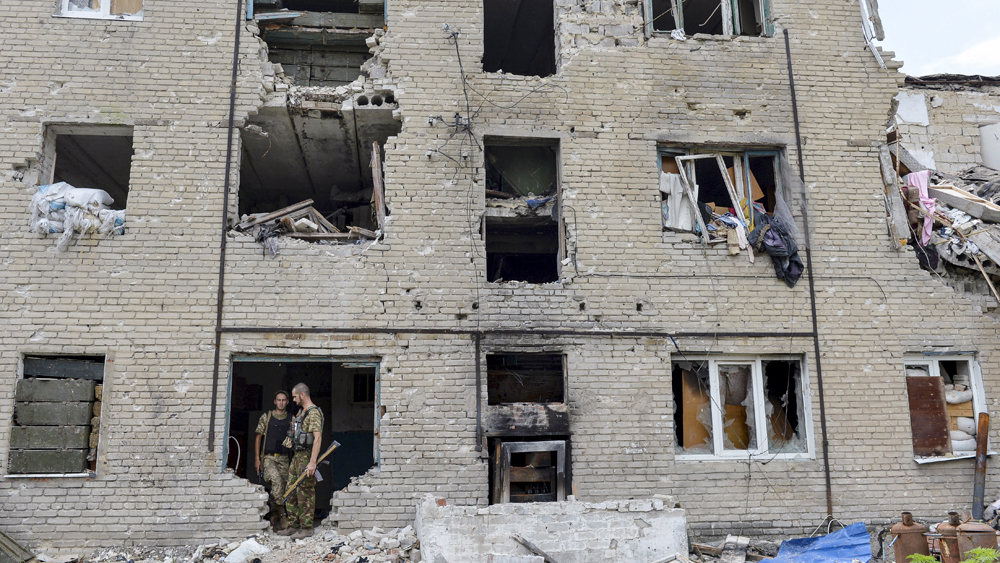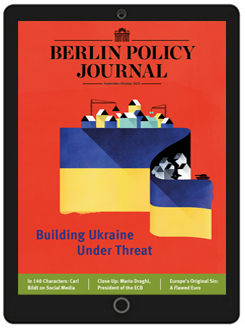Berlin is more deeply engaged in solving the situation in eastern Ukraine than ever before in an international conflict. State Secretary of the German Foreign Office Markus Ederer on the attempts to make “Minsk” work.
Ukraine is not only fighting for full control of its national territory while also having to reform the country economically. Ukraine is also in the midst of a search of identity, finishing the process of independence that started 25 years ago. What is it really about: building or rebuilding, state building or nation building? Both. If you want to talk about “nation building”, I would prefer the word “rebuilding”. In terms of “state building”, I would go with “building”. It’s essentially about predominantly Russian-speaking territories under separatists’ control and the debate, with constitutional ramifications, about Russian as a second official language. And about the fact that people, whether ethnic Russians or Ukrainians, used to coexist peacefully but now define themselves in mutual opposition. In that instance, we are definitely talking about “nation rebuilding”.
Can “nation building” be fostered and supported from the outside? Based on our various experiences in Afghanistan and other places, I tend to be skeptical. It’s a challenge to be met by the states themselves and really a question of ownership. Quite often it is impossible to penetrate the cultural conditions and internal differences of a nation or state. It can only really work if the communities of a country actually want to come together and if the majorities are willing to provide minorities with rights that deserve to be called that. From the outside, it is more reasonable to focus on state building: to see to it that some basic conditions exist conducive for nation building within that state and its citizens.
Especially in western Ukraine there seems to be such an ownership and a tremendous commitment among the civil society to building a functional state largely free of corruption? Absolutely – but I don’t think the idea of “state building” in western Ukraine necessarily has a beneficial influence on those we call separatists in Eastern Ukraine. In Kiev there are certainly movements that believe it would be best to try to realign a part of Ukraine with the West and leave behind the part that claims it does not want to go that way. That is certainly not our policy, not the Ukrainian government’s, and, interestingly, not Russia’s. Putin has repeatedly emphasized that those territories should remain part of Ukraine, but under conditions that are now being negotiated, that we defined in Minsk and that are interpreted differently and that are, therefore, disputed.
I think that it has to be our task, as much as is feasible, to get the fighting down to zero, to continue mediating between both conflicting parties through the Trilateral Contact Group, to build a stable framework for future political processes without loss of face for either side, and to help Ukraine reinstate sovereignty over its whole territory. It involves constitutional reforms and the status of the territories currently controlled by the separatists. It involves facilitating people coming together.
…
Read the complete article in the Berlin Policy Journal App – September/October 2015 issue.








